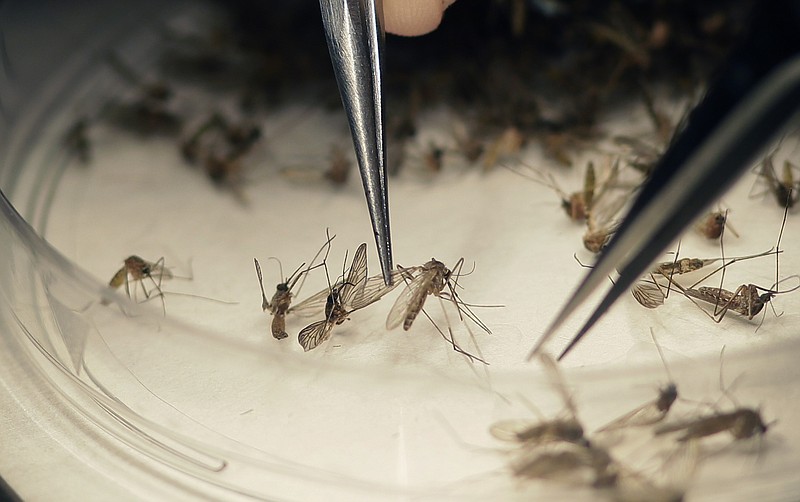The first case of a person infected with the Zika virus in Hamilton County has been reported, according to health department officials.
While the person's identity was not disclosed, health officials said the individual recently returned from a country where the Zika virus is widespread.
"We have expected that a travel-related case would occur within our county and we anticipate there will be more such cases," said Dr. Valerie Boaz, Chattanooga-Hamilton County Department of Health medical director. "What is of paramount importance is that we work to prevent local transmission of the Zika virus."
Health department officials did not reveal the neighborhood where the infected person lives, but said they are now going door to door in that neighborhood to talk to residents.
"We are giving [residents] specific suggestions on how to reduce [the threat] and protect themselves against mosquito bites," Boaz said.
A total of 23 laboratory-confirmed Zika cases have been reported in Tennessee as of Aug. 1, she said. All of those individuals apparently were infected while traveling outside the U.S.
About 80 percent of those infected with Zika will experience no symptoms at all, Boaz said. The virus will cause only a mild illness in the remaining 20 percent, with symptoms such as conjunctivitis (red eye), joint pain and a rash.
But its effects are often much more severe in pregnant women, sometimes causing birth defects.
"The greatest danger is for women in early pregnancy," said Dr. Mark Anderson, an infectious disease specialist with CHI Memorial. "It's always important for them to avoid mosquito bites, but it is all the more important now."
"We are advising any pregnant women to avoid travel to areas affected by Zika," Boaz said.
The first cases in the U.S. in which the virus was likely transmitted by local mosquitoes were reported last week in south Florida. Four people in the Miami-Dade and Broward County area were identified as infected by Zika, and none of them had traveled to countries experiencing outbreaks of the virus.
The virus is generally transmitted by mosquito bites. It can be spread locally if someone infected with the virus is bitten by a mosquito that then bites someone else, passing the infection on.
With a single case in Hamilton County, the odds are low that that will happen here, Anderson said.
"If that person was sick and out and about since they got home, there's a theoretical risk there, but it is still pretty small," he said.
The virus can also be spread through sexual contact.
The best advice for avoiding the virus is to stay away from countries where it is widespread, or to take precautions against mosquito bites.
The virus has been reported in the Caribbean and most Latin American countries.
Locally, health officials recommend that homeowners keep grass and underbrush in their yards cut low to avoid providing hiding places for mosquitoes and remove any sources of standing water, even as small as a bottle cap, where mosquitoes might breed.
Officials also recommend wearing mosquito repellent and long-sleeved clothes.
Anderson also warned local residents not to focus too much on the Zika virus while ignoring other insect-borne illnesses, such as Rocky Mountain spotted fever and ehrlichiosis, which are spread by ticks.
"Those pose very real risks," Anderson said, adding that he and his staff have treated several cases already this summer. "That's a much bigger danger now."
Health department officials said 10 cases of Rocky Mountain spotted fever have been reported in Hamilton County thus far in 2016, with 296 so far reported across Tennessee.
Contact staff writer Steve Johnson at 423-757-6673, sjohnson@timesfreepress.com, on Twitter @stevejohnsonTFP, and on Facebook, www.facebook.com/noogahealth.
